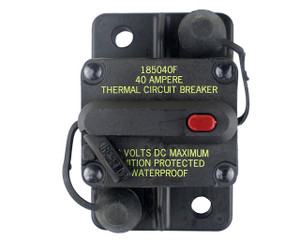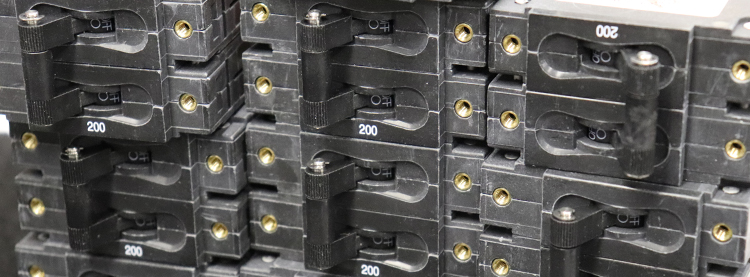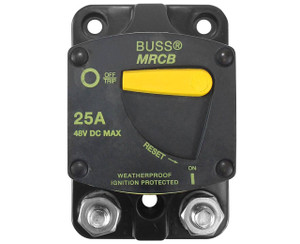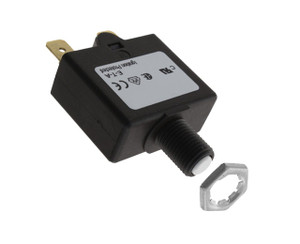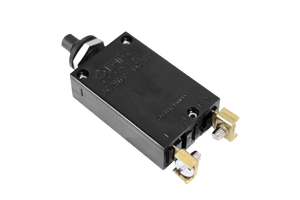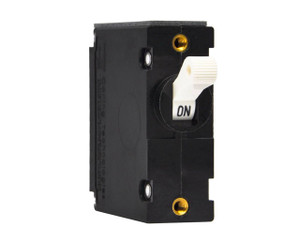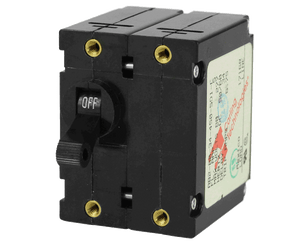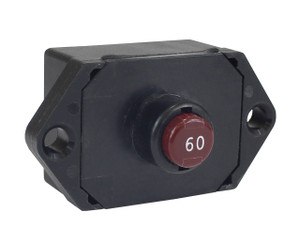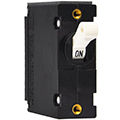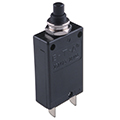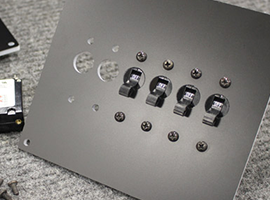Where are breakers implemented?
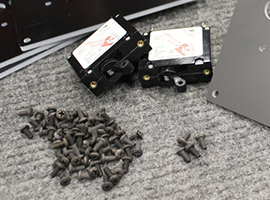
Breakers protect equipment from power spikes
Breakers are implemented in situations that call for electrical systems to be protected from power spikes. This is why you will find breakers in nearly every marine electrical system. All our breakers are ideal for new installations and are easy to install and connect. Additionally, they are perfect for replacement parts as well. Say you have older breakers, outdated breakers, or even damaged breakers; then these are the ideal products for you. All you will need are the proper tools, the correct terminals, and some breaker accessories. Now that we have covered the basics, let us look at what differentiates breakers and fuses.
What is the difference between a breaker and a fuse?
The main difference between a breaker and a fuse is that a breaker can be reset and used multiple times. A fuse, on the other hand, performs that same basic function as a breaker; however, a fuse must be replaced each and every time. This is not to say that fuses are useless and should be replaced with breakers. Fuses are extremely useful and are the ideal choice in a multitude of applications. There are, however, applications where a fuse is just not pragmatic or even reasonable. In these applications, breakers are better suited for the job.
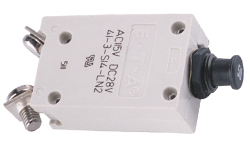
Thermal Breaker
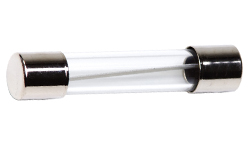
AGC Fuse
What types of breakers are available?
Breakers are available in a wide range of styles, amperages, and sizes in order to meet the needs of various industries. Pacer Group offers the most useful breakers that you will need, especially in a marine environment. We currently offer magnetic, thermal, and marine breakers in order to complement and protect your electrical system. Below we will take a more in-depth look at each of these types of breakers.
Magnetic Breakers
Magnetic breakers use a solenoid to detect excess current. When the current exceeds the threshold, the solenoid trips the breaker and opens the circuit. These are widely used in U.S. electrical systems due to their reliability.
Thermal Breakers
Thermal breakers rely on a bimetallic strip that bends when heated by excess current. If the strip bends far enough, the breaker trips and interrupts the circuit. Since ambient temperature can influence performance, these breakers are more sensitive in hotter environments.
Where would I use a breaker?
Breakers are used anywhere you have an electrical circuit that has sensitive or expensive equipment that needs to be protected from short circuits or overloads. Remember, they are built to essentially be a weak point in an electrical circuit. One that can be reset and used repeatedly. If you have a boat over 18 feet in length, chances are pretty good you will have an electrical circuit breaker in there. Always pick the type of circuit breaker best suited for your individual application.
Can these breakers withstand the harsh marine environment?
Yes. Every breaker we carry is tested for durability in marine conditions. While they aren’t meant to be submerged or left exposed to weather, they are built to handle constant vibration and the enclosed conditions of engine rooms and compartments.
This makes them ideal for use in challenging marine conditions. Treated with the same care as the rest of your electrical system, they’ll deliver long-lasting protection.
What industries use breakers?
Breakers are found in just about every industry that has deals, in any shape or form, with electrical systems. Seeing as how they protect electrical circuits, and more importantly, sensitive equipment, it makes sense that they are a very common electrical part. You will find electrical circuit breakers in the marine industry, automotive manufacturing industry, RV industry, database industry, industrial applications, and a multitude of others. This goes to show just how reliable and trustworthy these circuit breakers are.

Marine
Manufacturing

Automotive
Manufacturing

RV
Manufacturing

Database
Industry

Industrial
Equipment
*This page was updated on 9/24/2025*
